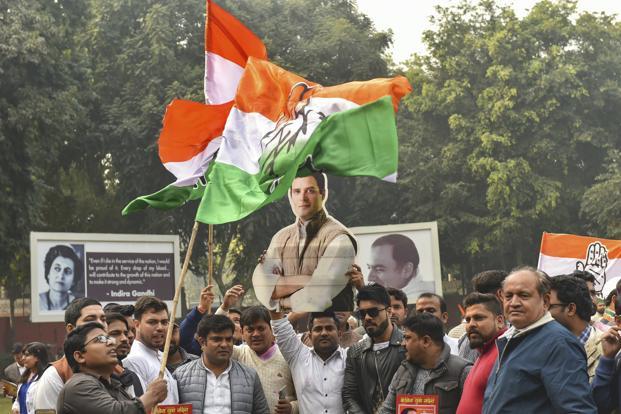With rural as well as urban support base shifting towards the Congress, BJP’s defeat is less of a surprise and more of suicide
Despite the absence of any visible pro-Congress wave, BJP in Chhattisgarh received a shameful defeat in the Assembly Elections. The humiliatingly large difference in the number of seats won by the Congress and BJP, shows how the ruling party failed to read the minds of people or deliberately overlooked it under the influence of political arrogance and over-confidence. Moreover, BJP had nothing substantial to offer to the voters in these elections, except a face for the CM’s post.
The ignominious defeat of BJP shows how angry people were from Raman Singh government and were desperate for a change, which resulted in a clear mandate for the Congress. Interestingly, this election comes with significant support for the Congress in all parts of the state. In 2013, Congress did better than the BJP mostly in south Chhattisgarh, especially the Bastar region. This time, the Congress has established strong leads across the state, including Bastar.
A closer look at the developments that took place in the state during the last two years, however, shows that the election results were not completely surprising. The greatest blunder by the ruling party has been the mishandling of agrarian crisis, which further fuelled farm discontent in the state. In the previous elections, BJP had promised increasing the MSP (Minimum Support Price) from Rs 1500 to Rs 2100 per quintal for paddy and also providing a bonus to farmers. After coming to power the government kept these promises pending for a major part of its term. It was only in 2017-18 that bonus were released to the farmers. However, the action failed to have desired political impact. Congress could see the fuelling discontent among farmers and thus came out with a populist election manifesto with Rs 2500 per quintal MSP for paddy, loan waiver to farmers and subsidized electricity. This seems to have played a major role in shifting farmers support from BJP to Congress.
What further made things complicated for BJP, was their inability to sense the growing discontent among trading community due to demonetization and GST. As a result, a crucial vote bank was lost in the urban areas. A key BJP functionary from the state who requested anonymity said that BJP had almost forgotten that Demonetization and GST could influence the elections and was under the impression that ‘impact’ of these economic decisions, introduced by the Central government, has settled down by now.
Corruption and unemployment also further fuelled the growing urban and rural discontent in the state. In almost all corruption cases, the government could only arrest lower functionaries, most of whom were from tribal areas, and the powerful perpetrators of the crime remained above the law.
With 15-years in power, BJP’s complacency became its biggest weakness in the 2018 Assembly elections. Severe farm and rural distress, unrest among the BJP’s core support base of traders and urban voters over demonetization and GST, and a feeble fight against corruption were the factors responsible for the BJP’s big loss in Chhattisgarh.

